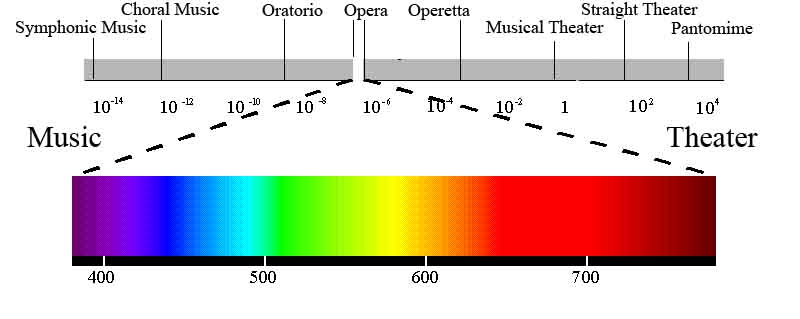So… why Music vs Theater?
 Music vs Theater. What the heck do I mean by that? Is it a lawsuit? A wrestling match? A fight to the death? When I was pitching potential blog titles to my friends, some were confused by the implications of this particular one. After all, I’m trying to make works of music and theater, why would I want a title that makes it sound like they can’t work together?
Music vs Theater. What the heck do I mean by that? Is it a lawsuit? A wrestling match? A fight to the death? When I was pitching potential blog titles to my friends, some were confused by the implications of this particular one. After all, I’m trying to make works of music and theater, why would I want a title that makes it sound like they can’t work together?
Here. Lemme splain…
Obviously, music and theater are separate things. And if you try to combine them in a single piece, they won’t necessarily work towards the same goal. They can operate on separate planes, like a form of macro counterpoint. Usually composers try to make the music act in tandem with the theater, illuminating nuances or internal states of characters, setting atmospheres, supporting the action. But it doesn’t always. How many musicals grind to a halt to make way for the dance number, or cram in a song that doesn’t advance the action one bit, but may sell an album? (I think I’m letting some of my preferences show through. That’s OK. It’s a blog.)
Sometimes the music works against the theater due more to stylistic reasons. They’re different and sometimes incompatible languages. Many audiences expect a degree of naturalism in their theater. Conversation on stage should sound like conversation in life. Sung theater immediately makes the conversation, well, less natural. The pacing of the action is altered. This isn’t always a bad thing, but it creates a challenge that must be addressed. In future posts we’ll take a look at different solutions through the eras and how well they’ve held up.
But perhaps it’s not so obviously true that music and theater are different things. After all, theater has innate music in its rhythms and sounds. And music relies on creating tension and resolution over time, a purely abstract form of drama or theater.
With Music vs Theater I’m interested in this overlap, the middle of the spectrum. The area where you’re not sure if you’re experiencing the theater of music or the music of theater.
I got here from FB today! I’m really enjoying this. Reminds of the few and far between chats we have when we’re together. Now, I’ll be able to hear more from you on a regular basis!
I had a little bit of a clue about what you meant by music vs. theater, based on what I’ve heard from you before.
Keep it going, Bri!
What I like about your choice to use “vs.” is how it illuminates two ancient, epic forces locked in opposition. Unlike street scuffles or betting bouts, the spectators are drawn by the conflict itself rather than the outcome. We cherish the eternal stalemate, drawing us again and again to eagerly witness the passionate struggle for dominance. No animosity required, either; even Sam and Ralph enjoy lunch together when they’ve punched off the clock. (http://en.wikipedia.org/wiki/Wolf_and_Sheepdog)
Great use of chromaspectography, too. (Watch as I ruin the solitude of Google’s lone hit for that word!)
Hi there — I got here from Thomas Cott’s “You’ve Cott Mail” — how lucky am I?! I’m also a composer and playwright — I LOVE that I’ve found someone else in that combination category! It’s been awhile since I’ve blogged and/or written anything (health reasons), but bouncing around in here has inspired me again. Looking forward to reading more–
Thanks for swinging by Madley. Great to see others out there with similar interests..